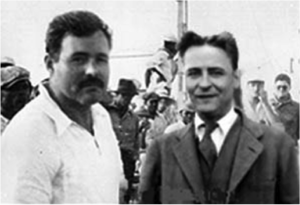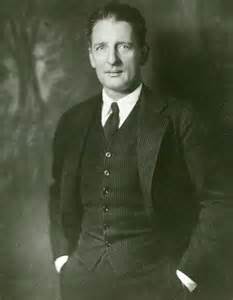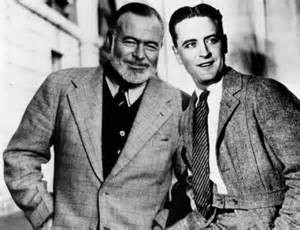I always think of Hemingway and Fitzgerald somewhat together because of their beginning in Paris. They had a falling out early on in their relationship and Fitzgerald died in 1940 at the age of 44, well before Hemingway’s who died in 1961. However, it is hard to avoid thinking of the early years, the promise, the romance, the excitement of a new direction in writing. Both were originals and true to their visions (well for the most part. Fitzgerald was not happy with writing for Hollywood in lieu of penning a great novel.) And you can’t think of Scott without Zelda. There is a new series about Zelda. Please read Ms. Felsenthal’s take on it all. The article was printed in Vogue and i have lifted only the first third. There is also an interview with Christina Ricci. And I added the photos. Love, Christine
by JULIA FELSENTHAL
You probably have some less-than-flattering preconceived notions of Zelda Fitzgerald, and there’s a good chance you cribbed them, at least indirectly, from Ernest Hemingway. In A Moveable Feast, his posthumously published (1964), now-beloved memoir of ex-patriot life in 1920s Paris, Hemingway wrote extensively about his good friend, the writer F. Scott Fitzgerald, and about Fitzgerald’s muse, his wife Zelda, the entrancing, free-spirited flapper extraordinaire. Except in Hemingway’s telling, she was actually a cruel, frivolous, controlling harpy who jealously undermined her husband’s success, manipulated him into a life of hard-drinking, and even convinced him he was too poorly endowed to keep a woman happy. When Zelda’s erratic behavior landed her in an institution (her diagnosis was schizophrenia, though we now speculate she might have been bipolar), Hemingway was pleased that it meant his poor put-upon buddy could finally get some real writing done.

The first season of Z takes place years before all that: Zelda is the belle of the ball in Montgomery, Alabama, less the wild child we’ve read about, and more an actual child testing out the boundaries of her rebelliousness. Then she meets a very young, enlisted F. Scott Fitzgerald (David Hoflin), stationed near Montgomery before shipping off overseas (the war would end before he had to), a Minnesota-born Princetonian who dreams of becoming a great writer and who has already incubated a not-so-great drinking problem.

The first few episodes of Z feel a little bit like Roaring ’20s Muppet Babies: a sunny, sanitized, myopic romp through the scrappy early years of a pair who would one day become icons of their age. But as the skies darken over the Fitzgeralds’ charmed life, the show becomes an unremitting examination of a complicated marriage in the early stages of curdling, and a kind, but not wholly apologetic spotlight on Zelda, who is struggling in real time to keep up bon vivant appearances, to keep her husband productive, and to locate any sense of personal creativity within a partnership that’s proving as stifling as Montgomery ever was.

We watch as Scott nixes Zelda’s acting aspirations and unabashedly mines her diaries for his own fiction. (Literary history goes that he would also later publish her stories under his name—he commanded the bigger paycheck—and that he excised from her only novel, Save Me the Waltz, biographical material that he wanted for his Tender Is the Night.) We also watch as Zelda’s unrealistic lifestyle-demands and ravenous appetite for novelty keep her husband away from his work.
Was F. Scott Fitzgerald the domineering husband who squashed his wife’s potential, or was she the succubus who ruined him? In the first season of Z it’s too early to tell, though the show seems far more interested in exploring the murky corners of their flawed coupling—the very definition of can’t live with/can’t live without—than it does in issuing a final verdict.


When her novel came out, The New Yorker criticized Fowler for smoothing out her character’s rough edges. Her Zelda was “easy to relate to even as she runs wild, sensible while allegedly insane.”
Ricci’s Zelda is no less relatable. We are, after all, in the age of the anti-heroine, when empathizing with women behaving badly is a thing. But in the actress’s hands, the character is also enigmatically feral. Her Zelda is unpredictable to a fault, a prisoner of her own racing mind, whose vagaries often lead her into situations she’s ill-equipped to handle. There’s always something roiling behind the actress’s eyes, a charge that makes her electric to watch.

“Our hope is that this for people is almost like a first-person experience,” Ricci told me over the phone. “It really gives you the time to go through her life with her. You feel more intimacy.”

